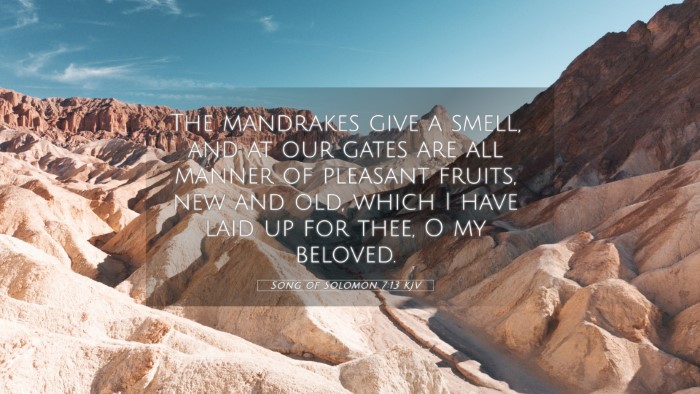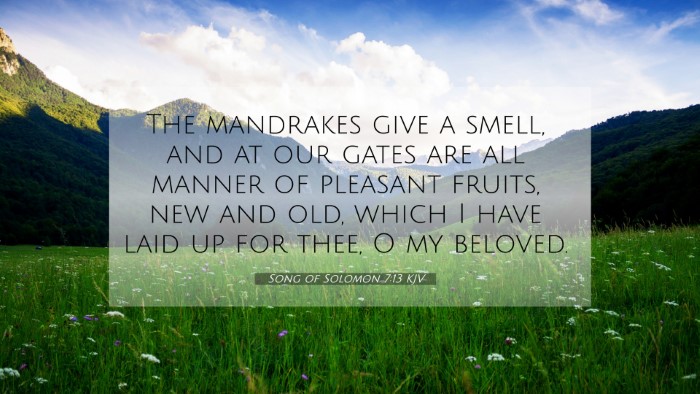Old Testament
Genesis Exodus Leviticus Numbers Deuteronomy Joshua Judges Ruth 1 Samuel 2 Samuel 1 Kings 2 Kings 1 Chronicles 2 Chronicles Ezra Nehemiah Esther Job Psalms Proverbs Ecclesiastes Song of Solomon Isaiah Jeremiah Lamentations Ezekiel Daniel Hosea Joel Amos Obadiah Jonah Micah Nahum Habakkuk Zephaniah Haggai Zechariah MalachiSong of Solomon 7:13 Similar Verses
Song of Solomon 7:13 Cross References
The mandrakes give a smell, and at our gates are all manner of pleasant fruits, new and old, which I have laid up for thee, O my beloved.
Uncover the Rich Themes and Topics of This Bible Verse
Listed below are the Bible themes associated with Song of Solomon 7:13. We invite you to explore each theme to gain deeper insights into the Scriptures.
Song of Solomon 7:13 Cross Reference Verses
This section features a detailed cross-reference designed to enrich your understanding of the Scriptures. Below, you will find carefully selected verses that echo the themes and teachings related to Song of Solomon 7:13 KJV. Click on any image to explore detailed analyses of related Bible verses and uncover deeper theological insights.
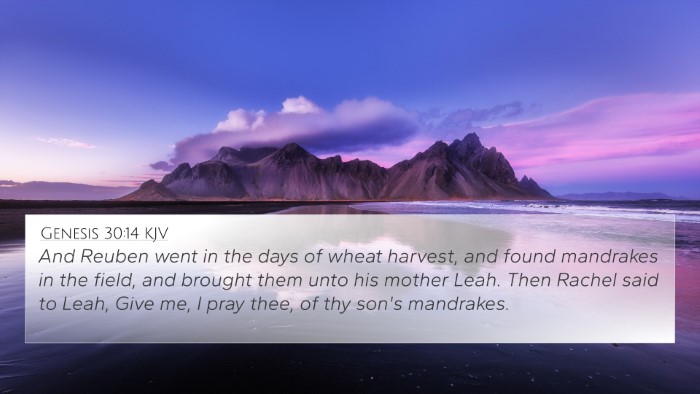
Genesis 30:14 (KJV) »
And Reuben went in the days of wheat harvest, and found mandrakes in the field, and brought them unto his mother Leah. Then Rachel said to Leah, Give me, I pray thee, of thy son's mandrakes.

Matthew 13:52 (KJV) »
Then said he unto them, Therefore every scribe which is instructed unto the kingdom of heaven is like unto a man that is an householder, which bringeth forth out of his treasure things new and old.

Colossians 3:17 (KJV) »
And whatsoever ye do in word or deed, do all in the name of the Lord Jesus, giving thanks to God and the Father by him.
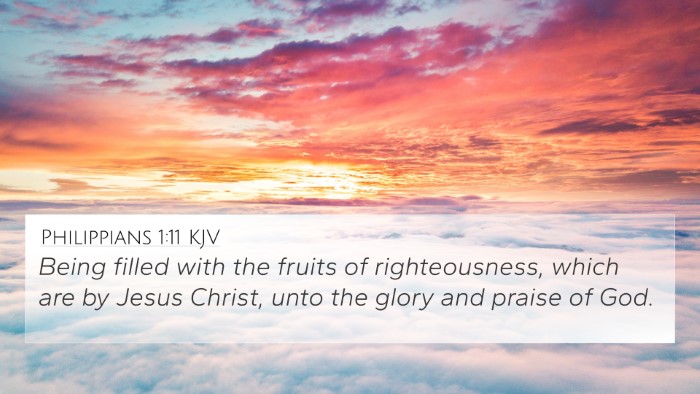
Philippians 1:11 (KJV) »
Being filled with the fruits of righteousness, which are by Jesus Christ, unto the glory and praise of God.
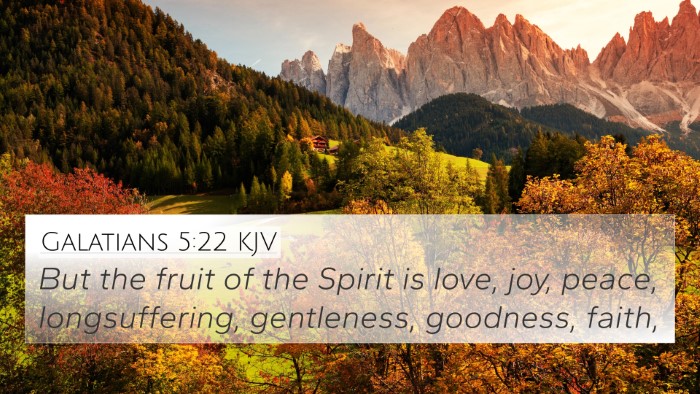
Galatians 5:22 (KJV) »
But the fruit of the Spirit is love, joy, peace, longsuffering, gentleness, goodness, faith,

1 Corinthians 16:2 (KJV) »
Upon the first day of the week let every one of you lay by him in store, as God hath prospered him, that there be no gatherings when I come.
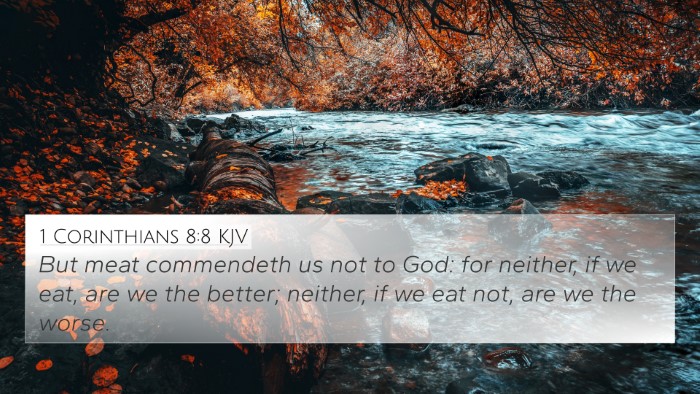
1 Corinthians 8:8 (KJV) »
But meat commendeth us not to God: for neither, if we eat, are we the better; neither, if we eat not, are we the worse.

1 Corinthians 2:9 (KJV) »
But as it is written, Eye hath not seen, nor ear heard, neither have entered into the heart of man, the things which God hath prepared for them that love him.

John 15:8 (KJV) »
Herein is my Father glorified, that ye bear much fruit; so shall ye be my disciples.

Matthew 25:40 (KJV) »
And the King shall answer and say unto them, Verily I say unto you, Inasmuch as ye have done it unto one of the least of these my brethren, ye have done it unto me.
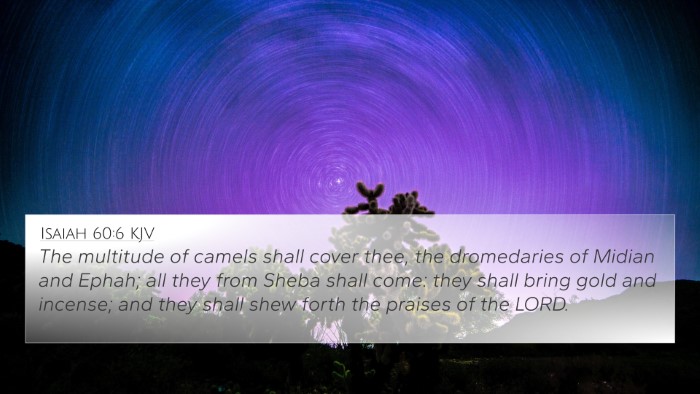
Isaiah 60:6 (KJV) »
The multitude of camels shall cover thee, the dromedaries of Midian and Ephah; all they from Sheba shall come: they shall bring gold and incense; and they shall shew forth the praises of the LORD.

Isaiah 23:18 (KJV) »
And her merchandise and her hire shall be holiness to the LORD: it shall not be treasured nor laid up; for her merchandise shall be for them that dwell before the LORD, to eat sufficiently, and for durable clothing.

Song of Solomon 4:13 (KJV) »
Thy plants are an orchard of pomegranates, with pleasant fruits; camphire, with spikenard,
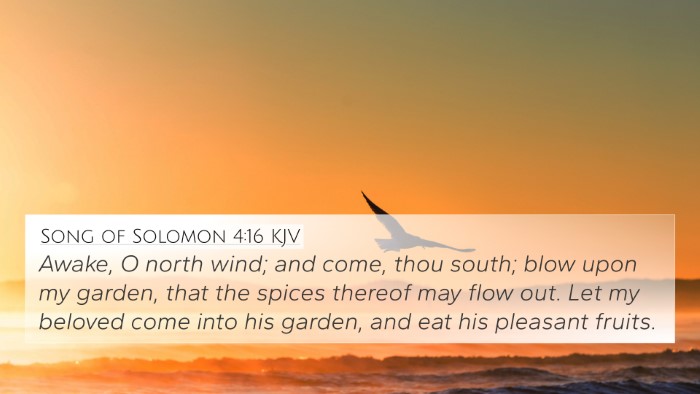
Song of Solomon 4:16 (KJV) »
Awake, O north wind; and come, thou south; blow upon my garden, that the spices thereof may flow out. Let my beloved come into his garden, and eat his pleasant fruits.

1 Peter 4:11 (KJV) »
If any man speak, let him speak as the oracles of God; if any man minister, let him do it as of the ability which God giveth: that God in all things may be glorified through Jesus Christ, to whom be praise and dominion for ever and ever. Amen.
Song of Solomon 7:13 Verse Analysis and Similar Verses
Understanding Song of Solomon 7:13
Verse: “The mandrakes give a smell, and at our gates are all manner of pleasant fruits, new and old, which I have laid up for thee, O my beloved.”
Summary of Meaning
This verse from the Song of Solomon expresses deep affection and romantic imagery, highlighting the beauty and abundance found in love. The mention of mandrakes, which were regarded as aphrodisiacs, symbolizes desire and fertility, while the “pleasant fruits, new and old” reflect the timeless and precious nature of love.
Insights from Commentaries
Matthew Henry
Henry emphasizes the romantic and intimate language in this section of the Song of Solomon, suggesting that the fruits symbolize the delightful variety and richness found in love. He connects this to the overall theme of the book, which celebrates the joys of love and desire.
Albert Barnes
Barnes notes that the mandrake, being an ancient symbol of fertility, underscores the theme of desire between the lovers. He draws attention to the idea that true love encompasses both physical attraction and emotional connection, presenting a holistic view of romance.
Adam Clarke
Clarke focuses on the metaphorical imagery of fruits, suggesting that they represent the emotional and spiritual fruits of love that can be shared between partners. This interpretative angle allows readers to see deeper relational dynamics beyond mere physical attraction.
Bible Cross-References
- Genesis 30:14-16: The mention of mandrakes in the story of Leah and Rachel highlights the cultural significance of this fruit in Fostering relational dynamics in the family.
- Song of Solomon 4:13-15: The imagery of gardens and fruits presents themes of beauty and sensuality in the relationship between lovers.
- Proverbs 5:15-19: Encourages the enjoyment of physical love within the bounds of marriage, relating to the themes of desire found in Song of Solomon.
- Isaiah 5:1: The imagery of a vineyard can relate to the appreciation of love and care that goes into cultivation in relationships.
- Luke 12:27: Jesus speaks of the beauty of flowers, paralleling how love can yield beautiful outcomes in life.
- Galatians 5:22-23: The fruits of the Spirit can provide a spiritual context for understanding the love discussed in Song of Solomon.
- Romans 5:5: Love is described as a gift of the Holy Spirit, linking divine love with human relationships.
Thematic Connections
The themes of desire, love, and relationship dynamics found in Song of Solomon can be linked to other biblical passages that explore similar concepts. The intentional use of agricultural metaphors showcases how love can be cultivated and nurtured.
Exploring Biblical Connections
By employing Bible concordance and cross-reference guides, one can identify connections between love and desire in various scriptures. Utilizing tools for Bible cross-referencing enriches the understanding of emotional and spiritual bonds present in the scriptures.
Conclusion
Song of Solomon 7:13 stands as a celebration of love's richness, characterized by its poetic language and mutual longing between lovers. The variety of interpretations offered by esteemed commentaries enhances our appreciation and understanding of the text, reinforcing the need for comprehensive Bible cross-reference materials to uncover deeper insights.
Keywords: Bible verse cross-references, connections between Bible verses, linking Bible scriptures, comparative Bible verse analysis, Bible verses that relate to each other, cross-referencing Biblical texts, thematic Bible verse connections, Bible verse parallels, scriptural cross-referencing, inter-Biblical dialogue.

